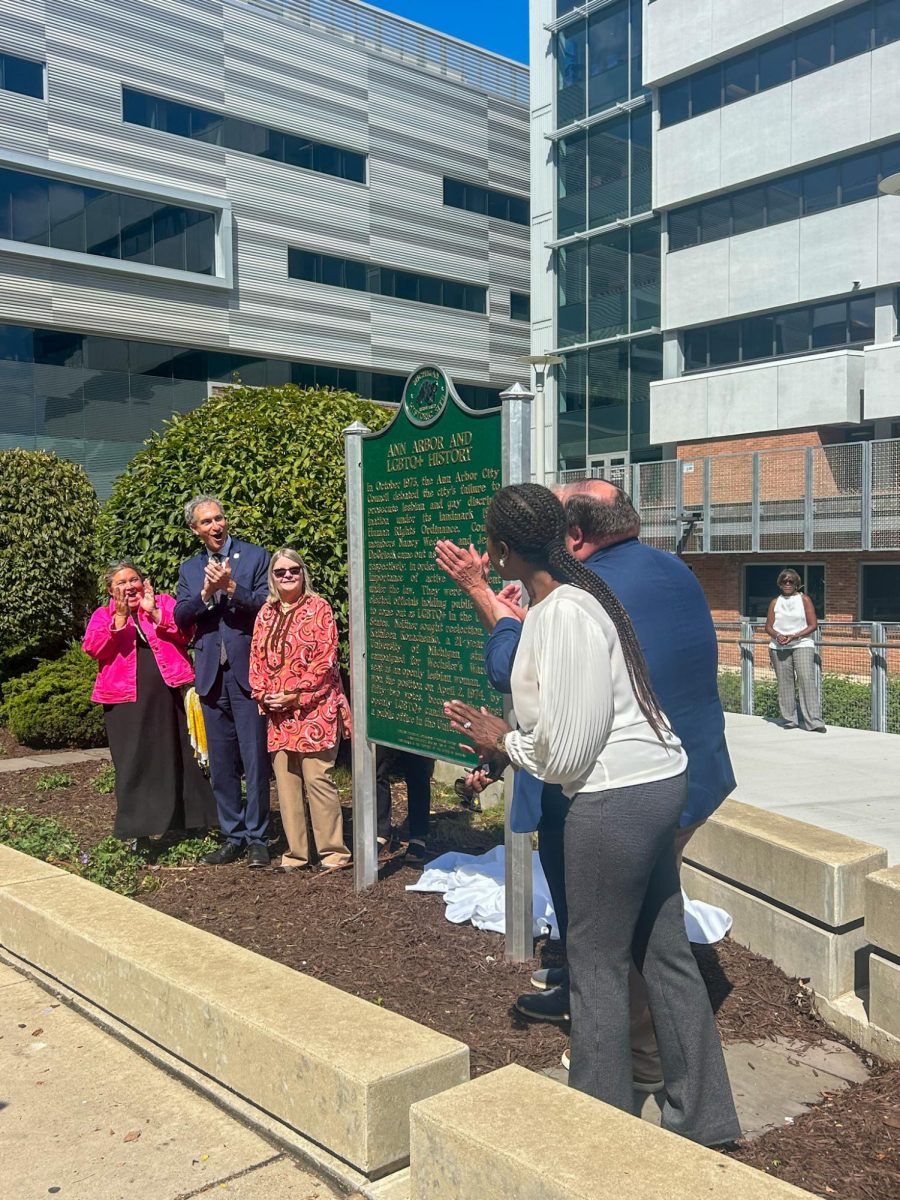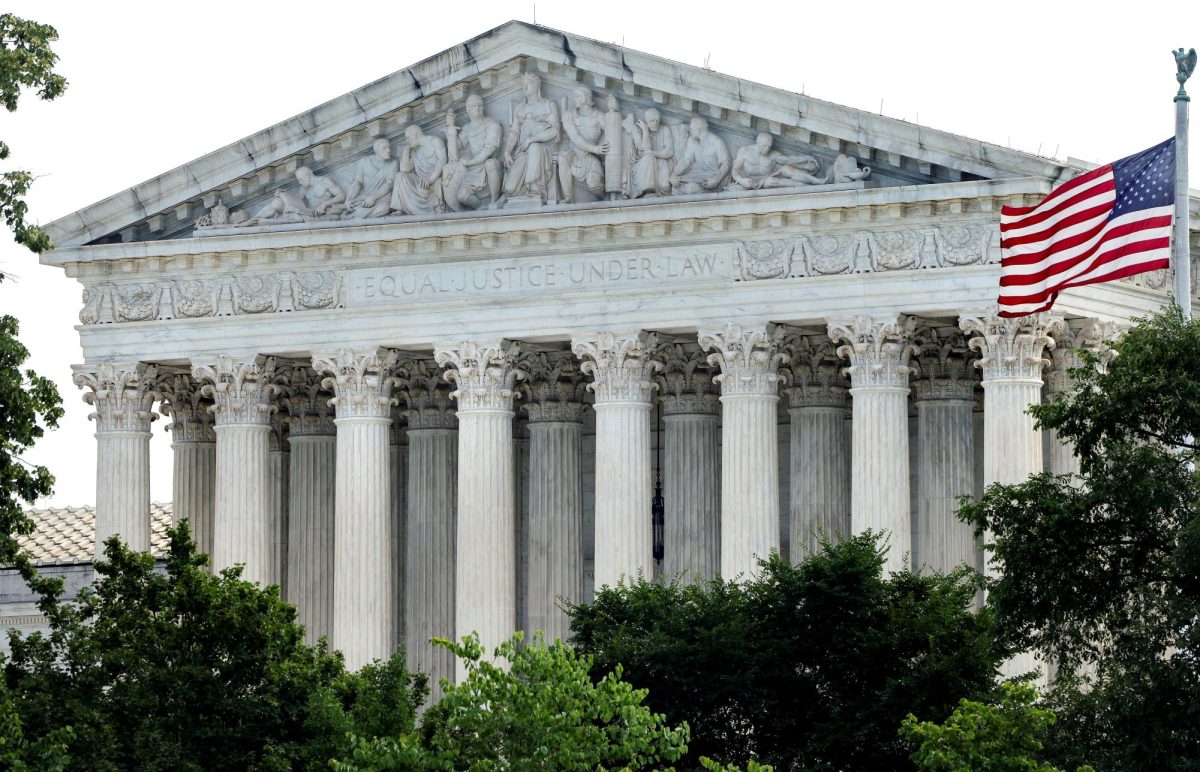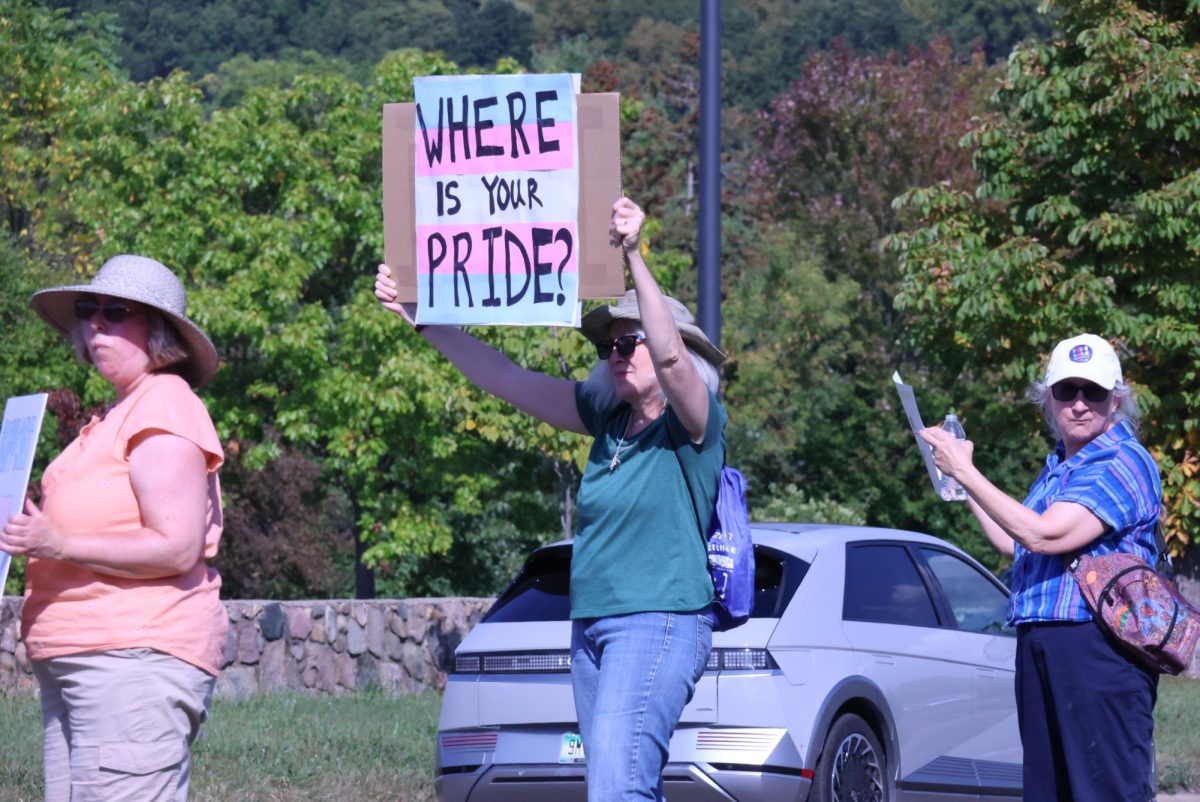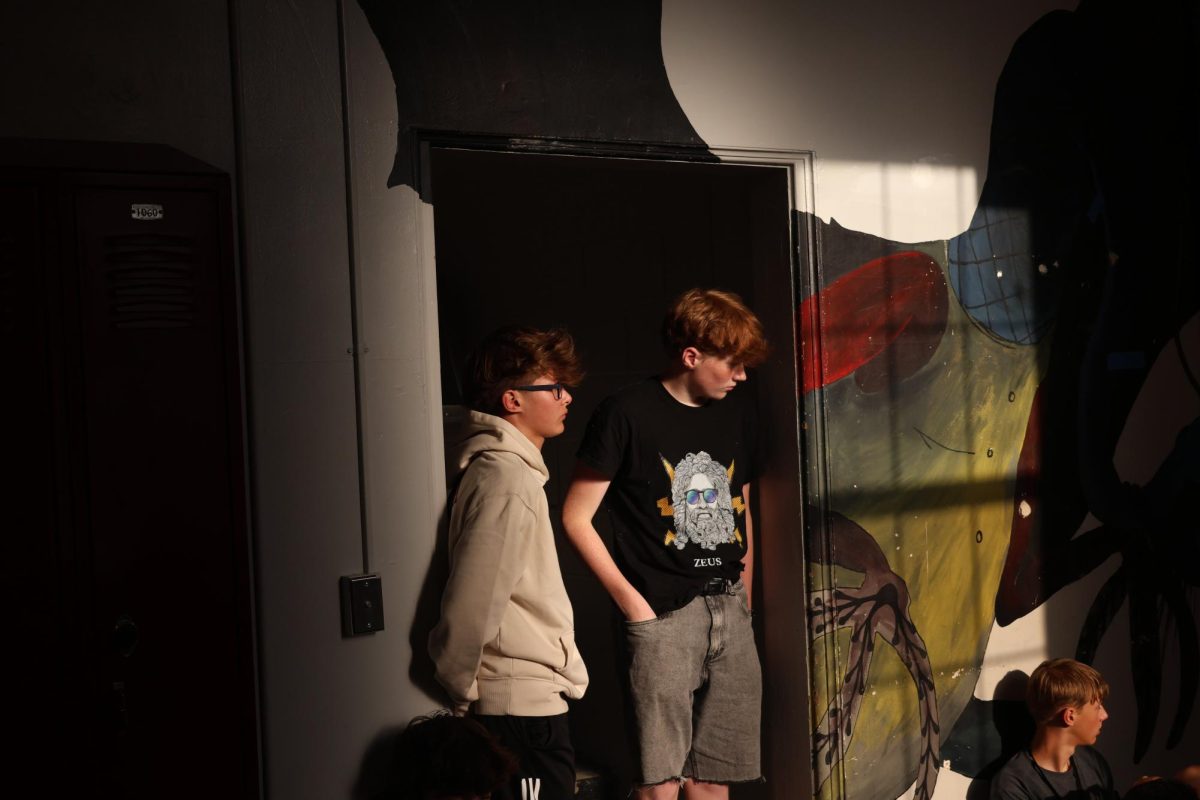Kathy Kozachenko—the first openly gay person to be successfully elected into public office—went to the University of Michigan, and her historic election took place right here in Ann Arbor.
Kozachenko was elected into the Ann Arbor city council on April 2, 1974 at 21 years old. After serving two years on council, advocating for social service programs and union work, Kozachenko left Ann Arbor to pursue a life in Pittsburgh in 1978. In 1979, she helped organize the first march on the capital for gay and lesbian rights.
On Sept. 4 2025, Kozachenko returned to Ann Arbor for an unveiling of a plaque honoring her, along with former council members Jerry DeGrieck and Nancy Wechsler, for their trailblazing contributions to the LBGTQ+ community.
The plaque, which can be found outside of the Ann Arbor City Hall on East Huron Street, depicts a detailed history of the LGBTQ+ community in Ann Arbor, including all three previous council members. Additionally, the plaque highlights the Human Rights Ordinance which was passed by council in 1972, the time when Jerry DeGrieck and Nancy Wechsler were serving. With the Ordinance, Ann Arbor, alongside East Lansing, became the first cities in the United States to protect members of the LGBTQ+ community from housing discrimination. Later in 1972, the council broadened the ordinance to include protection for employment and various public accommodations.
“If the plaque touches you in a personal way, or even just to take pride in Ann Arbor, and Ann Arbor’s history, just through the process, a number of city employees and members of the public have just reached out that it may be personal to them to read the words,” said Jacqueline Beaudry, the city clerk.
Beaudry and the clerk’s office played a major role in the process of obtaining this plaque. Originally, the city hoped to unveil the marker during the bicentennial year in 2024, but unfortunately the historical commission informed them that while their request was approved, the plaque would take a long time to make and deliver. Once it was known that the plaque could be unveiled in 2025, it became a priority that the people that were honored on it were able to make it to the ceremony.
“It feels a little surreal, but it feels good.” DeGrieck said. “At the time, I did not recognize the significance of what we had done, that we were the two first sexual minority people to be in public office and say so. I was not aware that that was the case”.
While serving on council in 1973, both DeGrieck and Wechsler came out together at a press conference in relation to a homophobic event in a restaurant.
“It was not hard. I had supported LGBTQ sexual minority rights from the time I began at the University of Michigan, and while I was on council,” DeGrieck said. “And so it felt like the most natural thing in the world. It felt liberating and exhilarating.”
Travis Radina, a current city council member who is part of the LGBTQ+ community, assisted the clerk’s office with choosing the location for the marker. Ultimately, its spot in the front of the building was selected for two main reasons: its size, and so that the public can learn about the significant history of the town just by walking by.
“I think about what it really means for LGBTQ+ young people who might be passing by city hall or visiting City Hall. To see this and see themselves reflected in our history and celebrated for the contributions that LGBTQ+ people have made to our community” Radina said.
For Radina, who is one of three current members of the LGBTQ+ community serving on city council, it is incredibly important to celebrate diversity as a strength.
“I think it is just incredibly impactful and important for them [young LGBTQ+ people] to see themselves as future history makers,” Radina said.
Radina had previously served on the board of the Jim Crow Community Center as their president, and was appointed as the LGBTQ+ liaison by the Mayor. He was extremely impacted by the unveiling. As a LGBTQ+ official it was incredibly special for him to celebrate this moment with the people who paved the way for him to be in a position to attend the event.
“For me, part of it is just knowing our history. I think for far too long, people really didn’t know Nancy and Jerry and Kathy’s story. There’s so much important history that happened right here in Ann Arbor, right here in our own community,” Radina said, “And knowing that history, championing that history, knowing that Ann Arbor was the first and it was radical at the time, hopefully, will inspire future people to get involved and be radical in their thinking as well.”
Ann Arbor is now the first city in the state of Michigan to have a LGBTQ+ historical marker. Over 50 years ago, Ann Arbor’s trailblazers set the foundation for the LGBTQ+ community. Today, in a time that is incredibly scary for this community, DeGrieck emphasizes people’s ability to make a difference and the importance of being involved in advocating against injustice.










